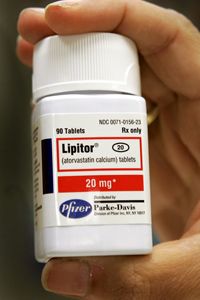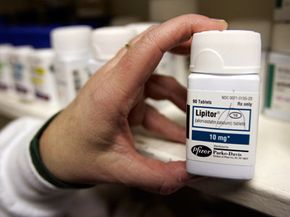If you take Lipitor to lower your cholesterol, you're not alone. More than 29 million people have been prescribed Lipitor, making it the No. 1 prescribed cholesterol medication in the world [source: Lipitor]. And since high cholesterol is a concern for so many, it's the highest-selling drug in the world, with sales well over $10 billion a year [source: Loftus]. If you're not on Lipitor, you may wonder what all the fuss is about. After all, Lipitor isn't the only cholesterol-reducing medication on the market, and it's certainly not the cheapest. Is there really anything that special about it?
You'd be in good company if you had those questions -- even Lipitor's creators weren't sure their new drug would make much of a dent on the market. Created by Parke-Davis (a company owned by pharmaceutical Warner-Lambert), Lipitor was a late entry into the cholesterol management market. Its development was marked by setbacks, including an early formula that essentially contained 50 percent waste material (material that had no health benefits) and mediocre results in animal studies [source: Winslow]. In those early studies, the drug performed exactly the same as other medications on the market. Though Parke-Davis created a process for eliminating the excess from the compound, there were still questions of whether the drug should move forward in testing. Was it worth it?
Advertisement
As you might guess from the first paragraph, it certainly was worth it. While the animal studies provided disappointing results, Lipitor immediately showed great promise for humans. In a study of 24 people, just 10 milligrams of Lipitor lowered counts of LDL, or bad cholesterol, by 38 percent, and at 80 milligrams, LDL was decreased by 58 percent [source: Winslow]. In both instances, these were significantly higher results than any other drug in this class could provide, even at higher doses.
Even with incredible results, Warner-Lambert still wasn't sure the drug could successfully enter the cholesterol market. The company partnered with Pfizer for marketing purposes, and due to the success of Lipitor, Pfizer acquired Warner-Lambert in 2000. Pfizer is known for its aggressive marketing practices, particularly its direct campaigns to doctors [source: Simons]. So is the success of Lipitor due to a great ad campaign or actual results? We'll take a look at what Lipitor does in your body on the next page.
Advertisement




